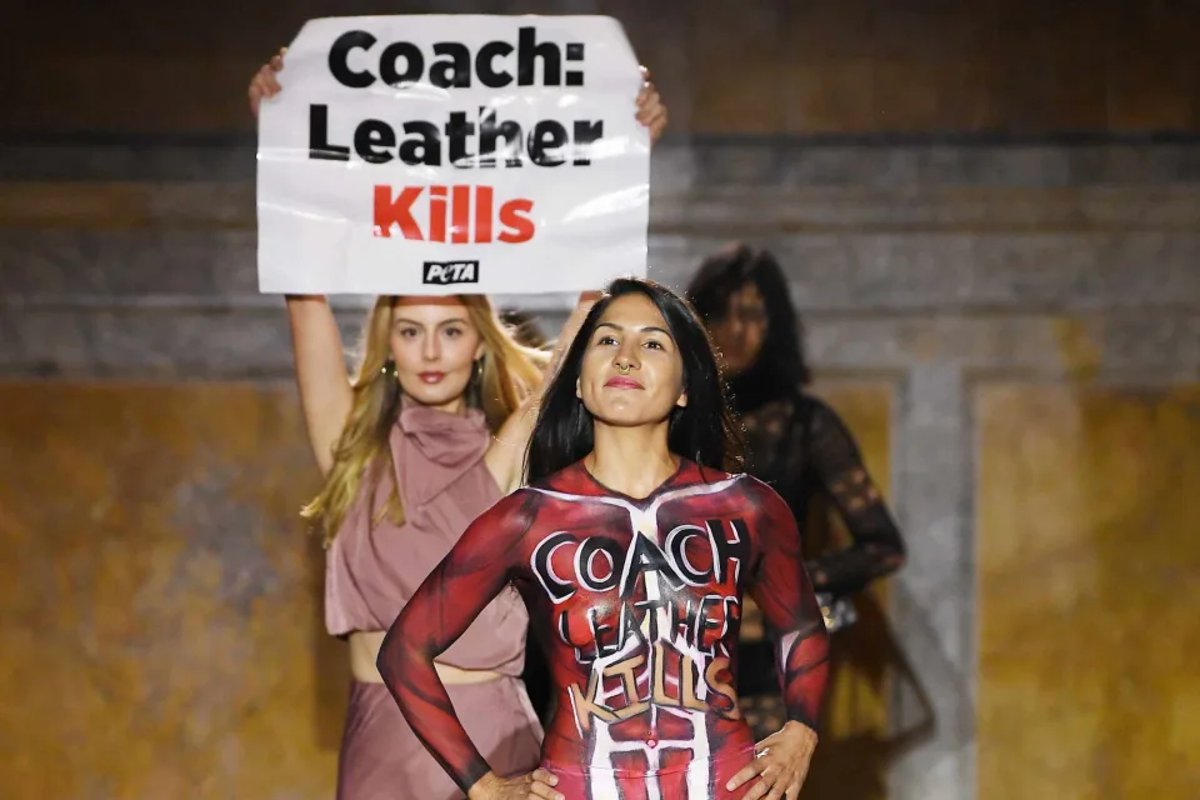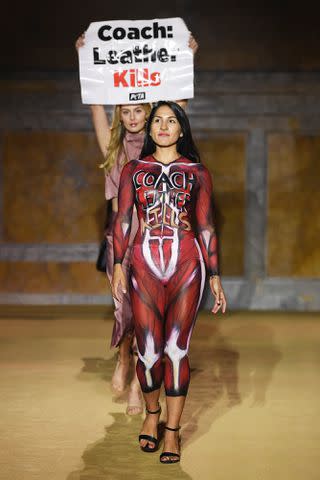Introduction:
The fashion world is known for its glamour and pomp, but not everything that happens backstage or on the runways is pretty. In September 2019, animal rights activists disrupted the Coach runway show in New York, protesting the use of fur in the brand’s designs. The move sparked conversations on both sides of the issue, with many questioning the approach while others lauded the advocates’ efforts to promote animal welfare. In this post, we will take a closer look at the Coach runway protest, why it happened, and what it means for advocacy and corporate responsibility in the fashion industry.
The protest:
On September 10, 2019, during the New York Fashion Week, about a dozen animal rights activists stormed the Coach runway while models were walking down the catwalk. The activists held signs that read “Animal Torture for Fashion is Not Luxury,” and chanted slogans to call for an end to the use of animal fur in fashion. The protest was soon over, but the images and videos captured by media outlets and audience members went viral, shining a spotlight on the issue of animal cruelty and its connection to luxury fashion.
The response:
Coach responded to the protest by releasing a statement that read, in part, “we understand the power of the message that protestors are delivering and believe that we must do our part as a responsible corporate citizen to advocate for these important issues.” The brand also announced that they will no longer use fur in their products, starting with the Fall 2019 collections. The move was a significant victory for the animal rights advocates, who had been pushing for the change for years. However, some critics argue that Coach’s decision to give in to the protestors’ demands was not a well-thought-out move, and may have set a dangerous precedent for future activism in the industry.
The fallout:
The Coach runway protest sparked conversations not just about animal rights but also about the role of advocacy and corporate responsibility in the fashion industry. Some praised the animal rights advocates for speaking up for the voiceless animals and pushing for change, while others criticized their approach as disruptive and ineffective. Some also questioned Coach’s decision to give in to the protestors’ demands, arguing that it was a knee-jerk move that could hurt the brand’s reputation and bottom line. However, others saw it as a step in the right direction for ethical fashion and encouraged other brands to follow in Coach’s footsteps.
The lesson:
The Coach runway protest and its aftermath offer several lessons for the fashion industry and those who care about animal rights and advocacy. One lesson is that advocacy can be effective in bringing about change, but it must be strategic, well-informed, and respectful. The activists who disrupted the Coach runway show may have gotten their message across, but they also risked alienating potential allies and harming their cause.

Another lesson is that corporate responsibility is not just a buzzword; it is a crucial aspect of doing business in the modern world. Brands that ignore their social and environmental impact risk losing customer trust and loyalty. Finally, the Coach runway protest serves as a reminder that fashion is not just about aesthetics and trends, but also about ethics and values. Consumers have increasingly high expectations for transparency and sustainability in the fashion industry, and it is up to brands to live up to those expectations.
Conclusion:
The Coach runway protest was a dramatic moment in the ongoing debate about animal rights and ethical fashion. While opinions on the protestors’ tactics and Coach’s response varied, there is no denying that the incident sparked important conversations about advocacy and corporate responsibility. Ultimately, this is a positive development for the fashion industry, as it challenges brands to rethink their practices and prioritize animal welfare, sustainability, and transparency. The Coach runway protest may have been a disruption, but it also serves as a sign of progress toward a more compassionate and responsible fashion industry.
